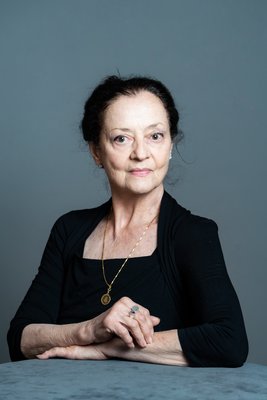Lilla Pártay was a child when she acquired her initial familiarity with the core elements of dance at Ferenc Nádasi's legendary ballet school. The next step in her professional training was the Hungarian State Ballet Institute, where she graduated in 1961. She signed with the Opera that same year, becoming a soloist there in 1971. During that period, 1968 was a significant year in the life of the young ballet artist: at the Varna International Ballet Competition, she won the bronze medal as a dancer while also taking the prize for best choreographer for the pas de deux from Manon she had created for the occasion. The next two decades would be dedicated to performing: after the competition, John Cranko invited her to dance the principal role in Swan Lake in Munich. After this successful guest appearance, splendid roles were waiting for her back home in Hungary. A few of the more significant ones include the title role of László Seregi's Sylvia, Ashton's La fille mal gardée, the dual principal role in the Russian version of Swan Lake and, finally, the two – both Seregi choreographies – she is fondest of: Flavia in Spartacus and the title role of Giselle. She also delivered outstanding portrayals in modern roles, spending an extended period with Maurice Béjart's company and also dancing the female lead in four different versions of Béla Bartók's The Miraculous Mandarin. Later, with two decades of performance experience under her belt since she starting out in 1968, she resumed her choreography career with one-act choreographies for music by Liszt. Her first full-evening ballet was Anna Karenina: crafted to music by Tchaikovsky, it brought enormous acclaim both from both the audience and – unequivocally – from within the profession. This was followed by other major works: The Moor of Venice choreographed to music by Schubert and a choreography for Ravel's Bolero. In 2001, she created a one-act ballet titled Concerto for music by Bartók, and in the autumn of 2002 choreographed Symphonic Minutes for a ballet gala featuring the music of Dohnányi. She has won numerous awards and recognitions over the course of her career, including the Ferenc Liszt Award (1972), Artist of Merit (1977), Artist of Excellence (1981), the Officer's Cross of the Order of Merit of the Republic of Hungary (1993), the Kossuth Prize (1994), eternal membership in the Company of Immortals (2009) Artist of the Nation (2014) and László Seregi Award (2023).
